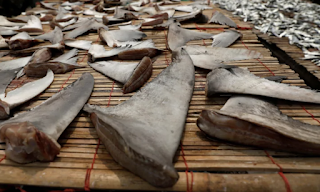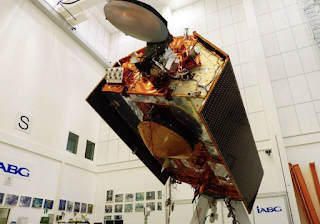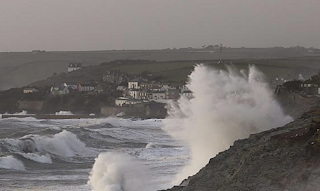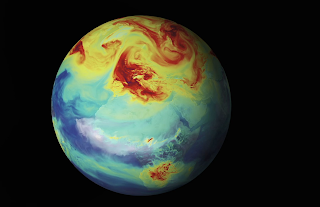1. Possession, sale, trade, and distribution of shark fins now illegal in New Jersey
Governor Phil Murphy signed S2905, which will prohibit the sale, trade, distribution, or offering for sale of shark fins, as well as the possession of any shark fin that is separated from a shark that is caught and released. The law will prevent the highly cruel practice of separating shark fins from sharks and releasing them back into the water. “Shark fins are often obtained in a very inhumane manner that causes much suffering to the animal,” said Governor Murphy. “I am proud to sign this law that will prevent the catch and release of sharks for the purpose of cutting off their fins.” New Jersey also shot down an 18-month effort to pass one of the nation’s most stringent sets of regulations to ban retail store bags, foam food containers, some utensils, and plastic straws appeared late Monday to fizzle out at the legislative deadline, with only one house voting on the measure.
Read more from the “Official Site of the State of New Jersey”
and
Read more from “NorthJersey.com”
Editorial and disclaimer: One of Sea Save Foundation’s core 2019 campaigns was to raise awareness and to encourage New Jersey residents to contact representatives to push this critical bill. We are pleased to announce this success.
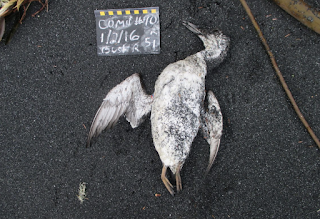
The common murre is a self-sufficient, resilient bird. Though the seabird must eat about half of its body weight in prey each day, common murres are experts at catching the small “forage fish” they need to survive. Herring, sardines, anchovies and even juvenile salmon are no match for a hungry murre. So when nearly one million common murres died at sea and washed ashore from California to Alaska in 2015 and 2016, it was unprecedented — both for murres and across all bird species worldwide. Scientists from the University of Washington, the U.S. Geological Survey and others blame an unexpected squeeze on the ecosystem’s food supply, brought on by a severe and long-lasting marine heatwave known as “the blob.”
Read more from “University of Washington News”
and
Read more from “CNN”
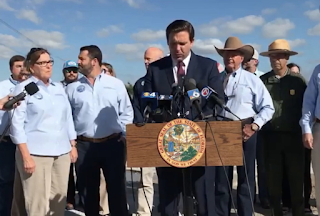
A swath of land in the Everglades at the center of a fight between a family determined to drill for oil and a constellation of parties urging them not to might finally have a new future. The state has bought the 20,000-acre tract outright and halts the threat of oil drilling on the protected lands, Governor Ron DeSantis announced Wednesday. The seller, a Miami family who made their fortunes in real estate, won the right to drill for oil on their land last year, despite opposition from the state. This is the largest state land acquisition in a decade.
4. New Zealand: Six commercial boats and 1000 kilos of fish seized
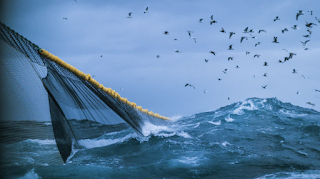 A raid on a group of commercial fishers in Thames has resulted in the seizure of multiple fishing vessels, a large amount of cash and more than 1000 kilograms of fish suspected of being illegally caught. Fisheries officers with the Ministry of Primary Industries alleged the fishers under-reported catches and illegally supplied snapper to an Auckland fish supply business. The government agency has been investigating allegations into the unlawful trade of commercially caught fish from the lower Firth of Thames into Auckland. Last month, 45 fishery officers and the police executed searches at five locations, including three residential properties in Auckland and Waikato. Electronic devices including phones and computers were also seized and are undergoing analysis.
A raid on a group of commercial fishers in Thames has resulted in the seizure of multiple fishing vessels, a large amount of cash and more than 1000 kilograms of fish suspected of being illegally caught. Fisheries officers with the Ministry of Primary Industries alleged the fishers under-reported catches and illegally supplied snapper to an Auckland fish supply business. The government agency has been investigating allegations into the unlawful trade of commercially caught fish from the lower Firth of Thames into Auckland. Last month, 45 fishery officers and the police executed searches at five locations, including three residential properties in Auckland and Waikato. Electronic devices including phones and computers were also seized and are undergoing analysis.
5. New satellites to launch will track will collect data and monitor rising oceans
Two new satellites will provide more detailed information about rising sea levels and other ocean changes on Earth. Launching in November, the Sentinel-6/Jason Continuity of Service mission (Jason-CS) will be the longest-running Earth observation mission dedicated to studying the rising oceans. The spacecraft will provide the most sensitive water level measurements as it reveals details about rising oceans, helping to build nearly 40 years of sea-level records. A joint U.S.-European satellite mission, S6 follows in the footsteps of a trio of missions (TOPEX/Poseidon and Jason-1, Ocean Surface Topography/Jason-2, and Jason-3) that have measured how sea levels have risen over the past 30 years. The preceding spacecraft revealed that Earth’s oceans rose by an average of 0.1 inches (3 millimeters) in the 1990s, increasing to 0.13 inches (3.4 mm) today.
6. Florida wades into the culture war over shark finning
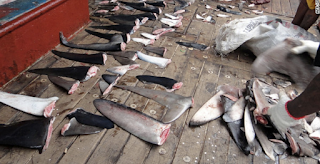 Florida lawmakers are getting support for a pair of bills that would ban the possession, import, export, and sale of separated shark fins in Florida. The legislation, HB 401 and SB 680 are designed to discourage the controversial and inhumane practice known as “shark finning”. The act of finning is illegal in the United States, but fin possession is not. Since finning is still practiced by other countries these animals can still be imported into the US via Florida ports. It involves pulling a live shark out of the water, cutting off its fin and tail, and tossing the live shark back in the water where it will either suffocate or be eaten alive by other animals.
Florida lawmakers are getting support for a pair of bills that would ban the possession, import, export, and sale of separated shark fins in Florida. The legislation, HB 401 and SB 680 are designed to discourage the controversial and inhumane practice known as “shark finning”. The act of finning is illegal in the United States, but fin possession is not. Since finning is still practiced by other countries these animals can still be imported into the US via Florida ports. It involves pulling a live shark out of the water, cutting off its fin and tail, and tossing the live shark back in the water where it will either suffocate or be eaten alive by other animals.
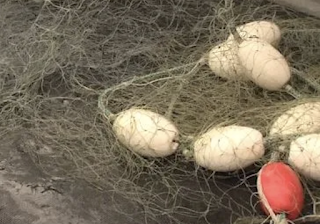 On Thursday, the U.S. Senate voted unanimously to pass the Save Our Seas 2.0 Act, legislation introduced by Alaska’s Sen. Dan Sullivan, Sen. Sheldon Whitehouse, D-R.I., and Sen. Bob Menendez, D-N.J., a release from Sullivan’s office states. Sullivan says he’s excited about the vote and that he worked on the bill for a whole year. “This literally is the most comprehensive legislation ever to clean up oceans,” he said. The act builds on the Save Our Seas Act that was introduced by Sullivan and Whitehouse and signed into law by President Trump in October 2018.
On Thursday, the U.S. Senate voted unanimously to pass the Save Our Seas 2.0 Act, legislation introduced by Alaska’s Sen. Dan Sullivan, Sen. Sheldon Whitehouse, D-R.I., and Sen. Bob Menendez, D-N.J., a release from Sullivan’s office states. Sullivan says he’s excited about the vote and that he worked on the bill for a whole year. “This literally is the most comprehensive legislation ever to clean up oceans,” he said. The act builds on the Save Our Seas Act that was introduced by Sullivan and Whitehouse and signed into law by President Trump in October 2018.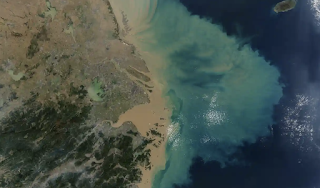 The heat in the world’s oceans reached a new record level in 2019, showing “irrefutable and accelerating” heating of the planet. The world’s oceans are the clearest measure of the climate emergency because they absorb more than 90% of the heat trapped by the greenhouse gases emitted by fossil fuel burning, forest destruction and other human activities. The new analysis shows the past five years are the top five warmest years recorded in the ocean and the past 10 years are also the top 10 years on record. The amount of heat being added to the oceans is equivalent to every person on the planet running 100 microwave ovens all day and all night.
The heat in the world’s oceans reached a new record level in 2019, showing “irrefutable and accelerating” heating of the planet. The world’s oceans are the clearest measure of the climate emergency because they absorb more than 90% of the heat trapped by the greenhouse gases emitted by fossil fuel burning, forest destruction and other human activities. The new analysis shows the past five years are the top five warmest years recorded in the ocean and the past 10 years are also the top 10 years on record. The amount of heat being added to the oceans is equivalent to every person on the planet running 100 microwave ovens all day and all night.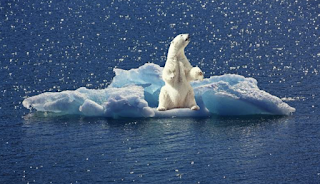 The window of opportunity for mitigating climate change is narrow. Limiting global warming to 1.5°C will require rapid and deep alteration of attitudes, norms, incentives, and politics. Some of the key climate change and energy transition puzzles are therefore in the realm of the social sciences. However, these are precisely the fields that receive the least funding for climate-related research. This article analyzes a new dataset of research grants from 333 donors around the world spanning 4.3 million awards with a cumulative value of USD 1.3 trillion from 1950 to 2021. Between 1990 and 2018, the natural and technical sciences received 770% more funding than the social sciences for research on issues related to climate change. Only 0.12% of all research funding was spent on the social science of climate mitigation.
The window of opportunity for mitigating climate change is narrow. Limiting global warming to 1.5°C will require rapid and deep alteration of attitudes, norms, incentives, and politics. Some of the key climate change and energy transition puzzles are therefore in the realm of the social sciences. However, these are precisely the fields that receive the least funding for climate-related research. This article analyzes a new dataset of research grants from 333 donors around the world spanning 4.3 million awards with a cumulative value of USD 1.3 trillion from 1950 to 2021. Between 1990 and 2018, the natural and technical sciences received 770% more funding than the social sciences for research on issues related to climate change. Only 0.12% of all research funding was spent on the social science of climate mitigation.The rate of coastal erosion around the UK is expected to increase substantially in the future, according to a new study by the University of Plymouth. The report, prepared for the Marine Climate Change Impacts Partnership (MCCIP), highlights that 17% of coastlines in the UK and 19.9% in Ireland are being affected by a range of issues including sea-level rises and the increased frequency and intensity of extreme storms. England and Wales are the worst affected UK regions, with 28% of their 3700km of coast experiencing erosion greater than 10 cm per year, while more than three-quarters of Scotland’s coast is unlikely to erode at perceptible rates.
Editorial Note:
Formula 1 has launched a plan to become carbon neutral by 2030. The intention is to wipe out the carbon footprint of activity at race tracks, including road and air transport of staff and equipment to the events. F1 says it will “move to ultra-efficient logistics and travel and 100% renewably powered offices, facilities and factories” and offset emissions that cannot be cut. F1 said as a first step it would begin carbon-reduction projects immediately. It added that it will make all events “sustainable” by 2025, including eliminating single-use plastics and ensuring all waste is reused, recycled or composted.
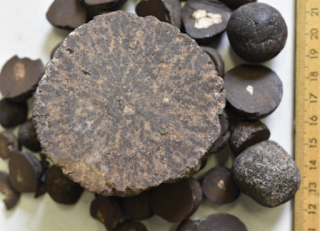 Rare metallic elements found in clumps on the deep-ocean floor mysteriously remain uncovered despite the shifting sands and sediment many leagues under the sea. Scientists now think they know why, and it could have important implications for mining these metals while preserving the strange fauna at the bottom of the ocean. The growth of these deep-sea nodules—metallic lumps of manganese, iron, and other metals found in all the major ocean basins—is one of the slowest known geological processes. These ringed concretions, which are potential sources of rare-earth and other critical elements, grow on average just 10 to 20 millimeters every million years. Yet in one of earth science’s most enduring mysteries, they somehow manage to avoid being buried by sediment despite their locations in areas where clay accumulates at least 100 times faster than the nodules grow.
Rare metallic elements found in clumps on the deep-ocean floor mysteriously remain uncovered despite the shifting sands and sediment many leagues under the sea. Scientists now think they know why, and it could have important implications for mining these metals while preserving the strange fauna at the bottom of the ocean. The growth of these deep-sea nodules—metallic lumps of manganese, iron, and other metals found in all the major ocean basins—is one of the slowest known geological processes. These ringed concretions, which are potential sources of rare-earth and other critical elements, grow on average just 10 to 20 millimeters every million years. Yet in one of earth science’s most enduring mysteries, they somehow manage to avoid being buried by sediment despite their locations in areas where clay accumulates at least 100 times faster than the nodules grow.
———————————————–

